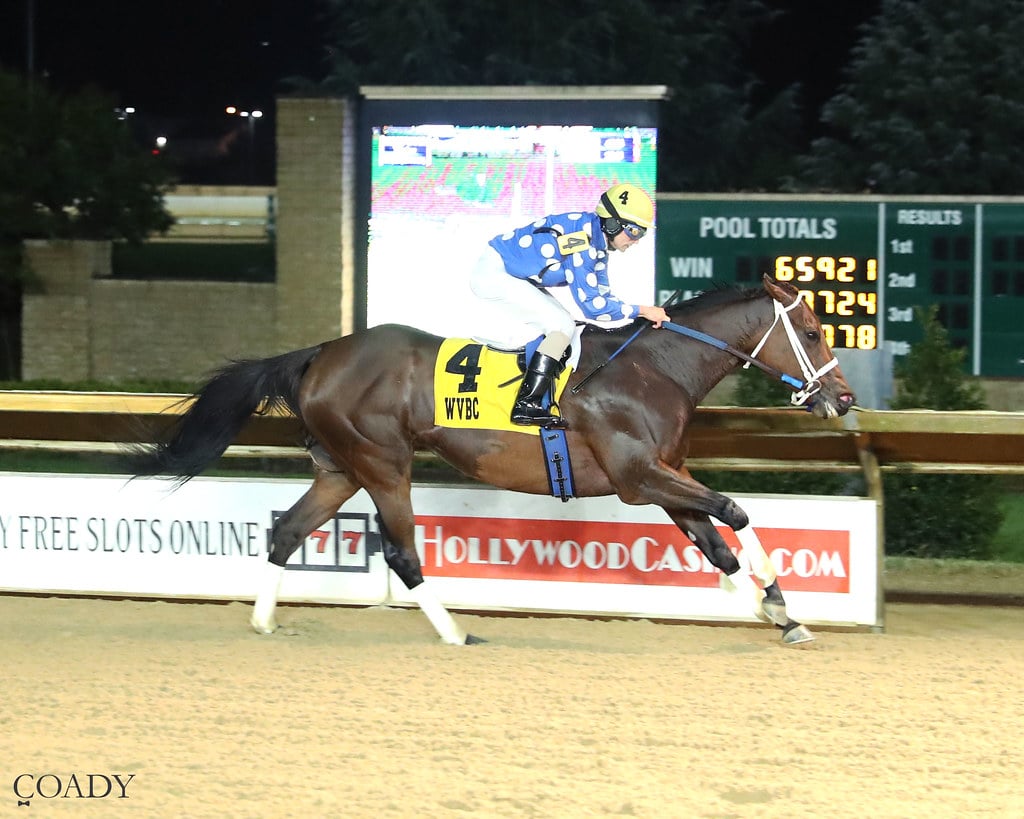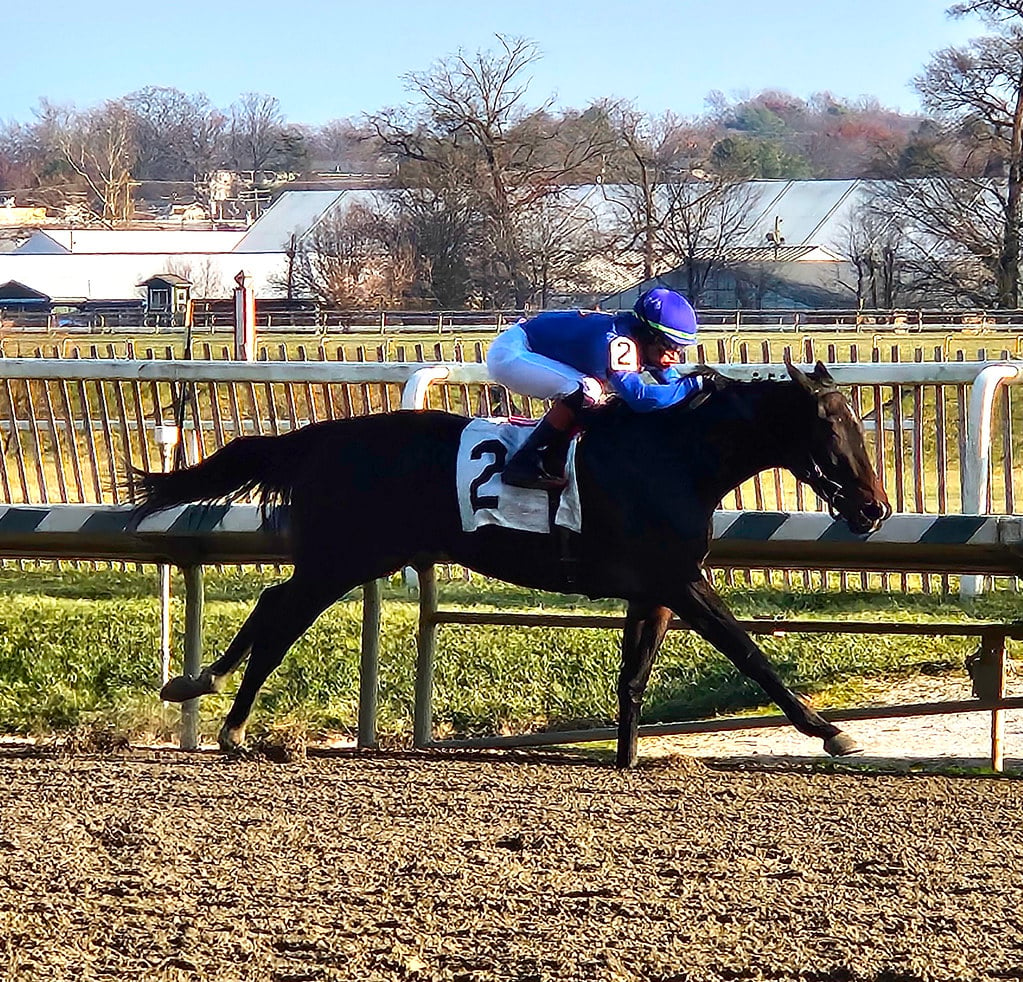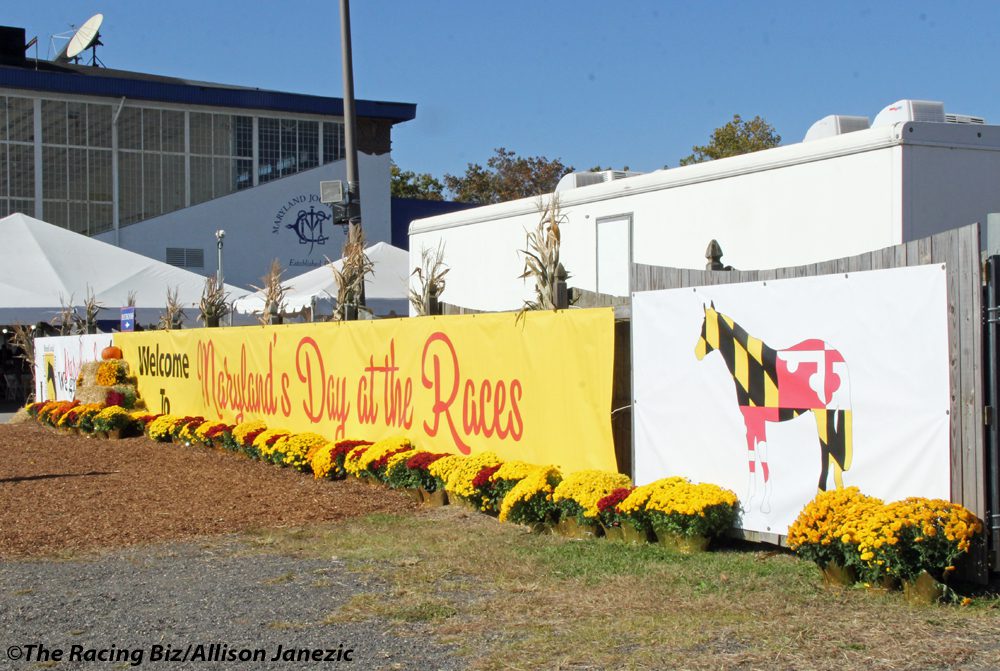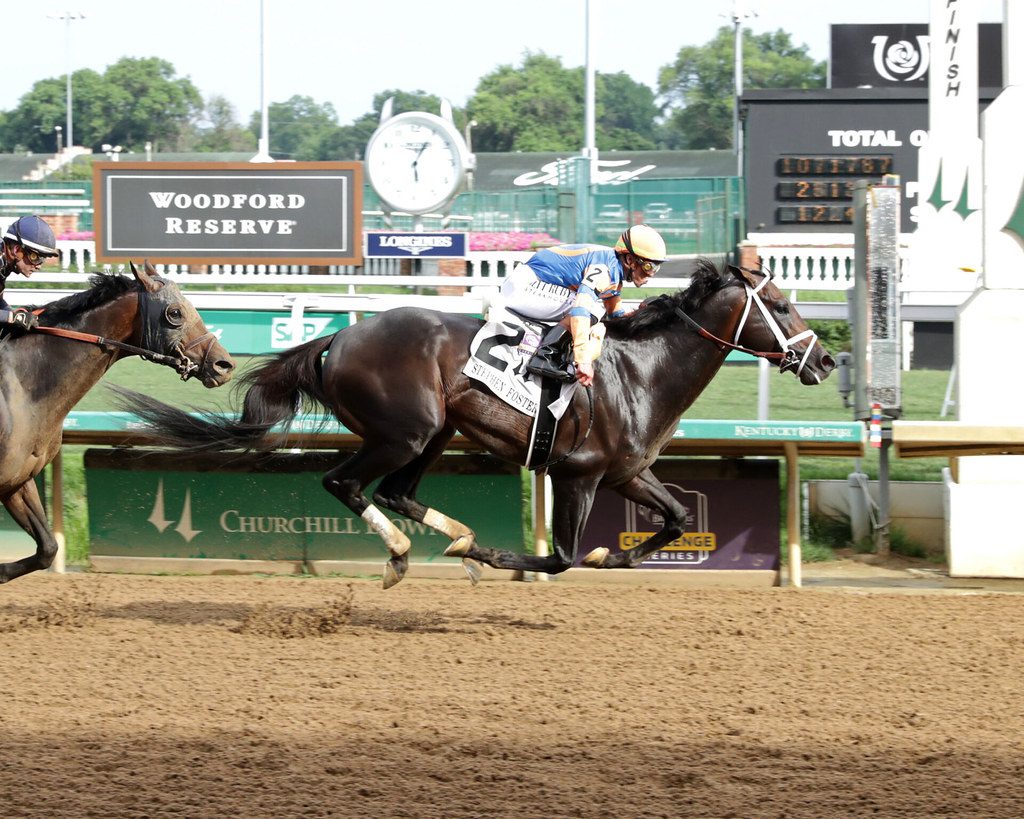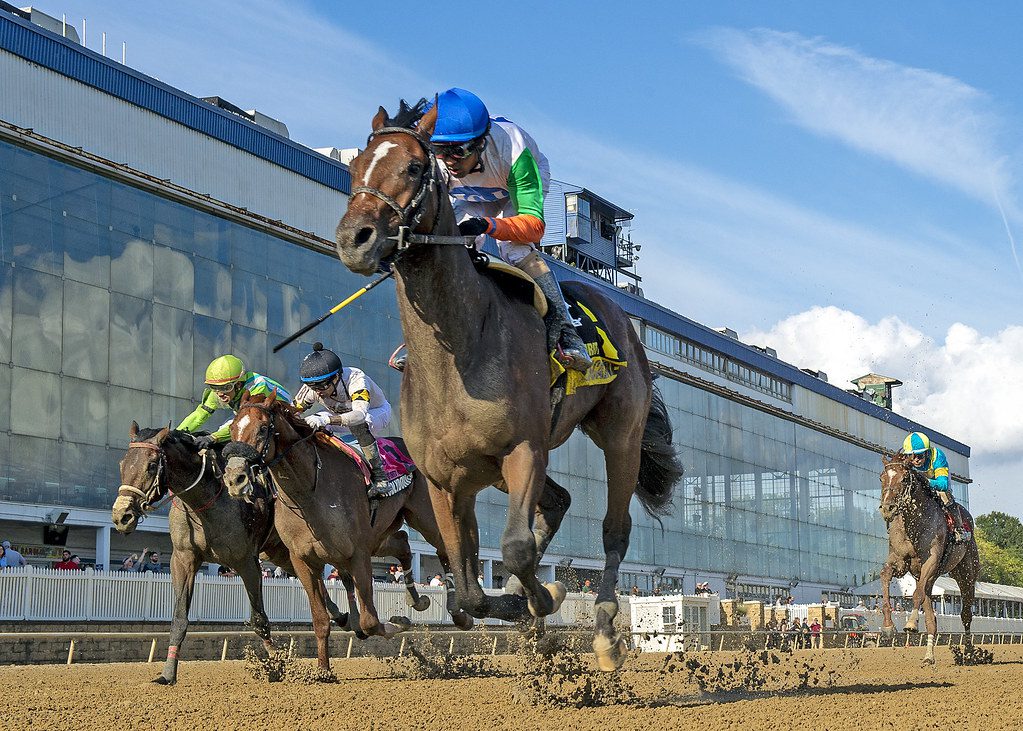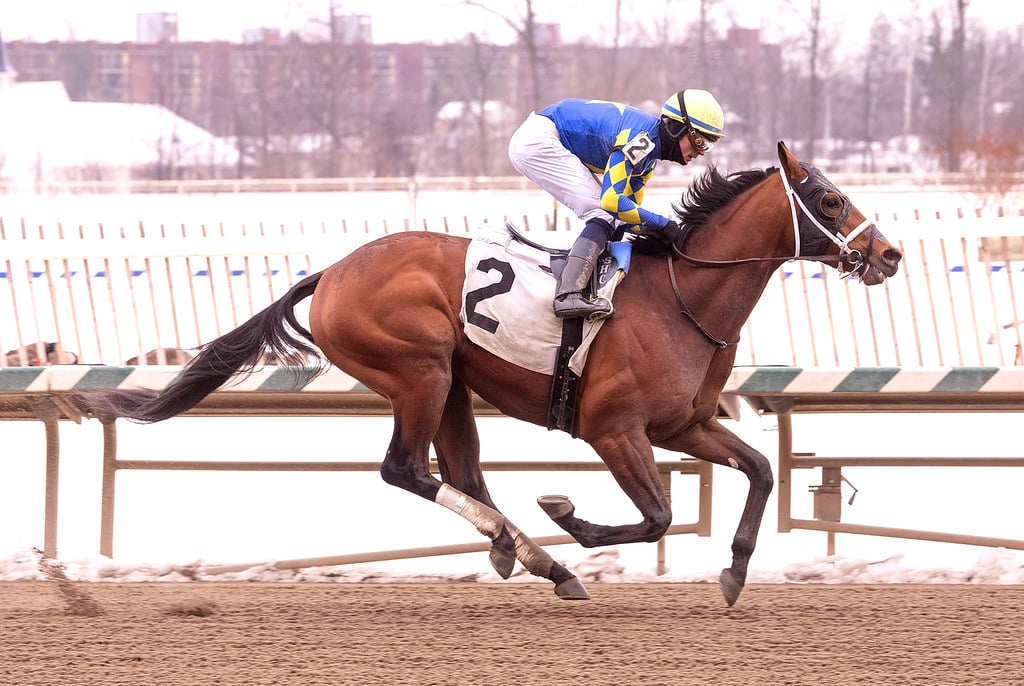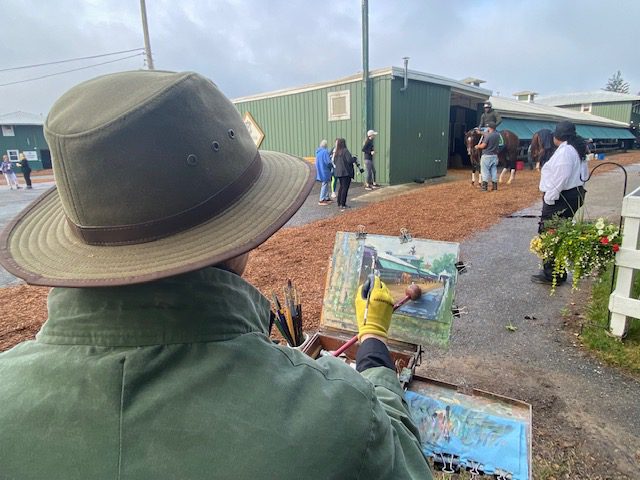Maryland Racing Commissioners seek “more active role”
Some Maryland Racing Commissioners have grown frustrated during a consequential session of the state General Assembly in which the Commission has been largely sidelined. Those frustrations boiled over Tuesday at the Commission’s monthly meeting at Laurel Park.
At issue: two pieces of legislation, one of which directly undermines the Commission’s authority and one which some believe pits different elements of the horse industry against each other. The first bill, SB 627, would transfer the Commission’s longstanding authority over off-track wagering facilities – known as satellite simulcast betting facilities (SSBs) in Maryland law – to the State Lottery and Gaming Control Agency.
“As Commissioners, we need to take a more active role” in legislation, said Commissioner Bobby Lillis, who kicked off the conversation. “We should have taken a position and opposed [SB 627].”
SB 627 was introduced by Sen. Mike McKay, a Republican who represents Garrett, Allegany, and Washington Counties in western Maryland. It apparently grew out of a constituent’s thwarted efforts to open an SSB.
“The guy was going through the wrong procedures,” Lillis, a former jockey and employee of the Maryland Horsemen’s Assistance Fund, said of the constituent.
The legislation has thus far languished in the Budget and Taxation Committee, and with the session set to end April 8 seems unlikely to move forward. But Lillis said he was angry when, watching a hearing on the bill, a Senator asked what the Commission’s position was and, with no Commissioners in the room, received no response.
“I almost jumped out of my seat,” he said.
The latter piece of legislation is more consequential – and more likely to pass. That’s HB 1524, which would put the “Pimlico Plus” plan to remake the state’s Thoroughbred racing industry into motion. The bill would lead to the closure of Laurel Park, the renovation of Pimlico Race Course, the opening of a new training center, and the replacement of the private, for-profit model of racetrack ownership in the state with a state-owned, nonprofit-managed model under the auspices of the Maryland Thoroughbred Racetrack Operating Authority (MTROA).
HB 1524 sailed through the House of Delegates April 1 on a 104-34 vote and now must go through the Senate in the next six days. It is supported by Gov. Wes Moore, a Democrat.
CHECK OUT THE LATEST OFF TO THE RACES RADIO!
But harness interests, while saying they support the overall concept, have rebelled. That’s because the bill would transfer $4.8 million of currently unencumbered funds targeted for use at Rosecroft Raceway from the slots-fueled Racetrack Facilities Renewal Account (RFRA) into Thoroughbred accounts and do the same with the funds for which Rosecroft would have been eligible from RFRA going forward.
RFRA provides one-to-one matching funds and requires a track to spend money prior to receiving reimbursement equivalent to 50 percent of what was spent. According to an analysis prepared by the General Assembly’s Department of Legislative Services, Rosecroft’s intended share of RFRA in 2025 is estimated to be “approximately $1.3 million.” It declines, as RFRA gradually sunsets, to approximately $639,400 in fiscal year 2030 and then disappears altogether by 2033.
The two provisions could end up transferring more than $10 million originally intended for harness facilities uses to supporting the Pimlico Plus project over the next decade or so.
“It’s despicable that there is language [in HB 1524] that takes money away from Rosecroft,” Lillis said. “I oppose that part of the bill.”
Commissioner Tammy Lafferty, a harness owner, added, “I think it’s absolutely awful. This could put us out of business. Do you really want to put a whole industry out of business?”
Harness interests believe that even if the Stronach Group, the current owner of Rosecroft, is unwilling to make improvements to the aging facility, a subsequent owner might feel differently and want access to those funds. What’s more, if Rosecroft were to close, Ocean Downs, the harness track near Ocean City, could use the funds, were it permitted to do so, to make improvements that would allow it to expand its season beyond the summer months and at least partially make up for the loss of Rosecroft, which currently runs 60 of the state’s 108 days of live harness action.
But Alan Foreman, who represents the Maryland Thoroughbred Horsemen’s Association on the MTROA, pushed back, saying that to think the Thoroughbred industry is trying to destroy the harness industry “is just nonsense.”
RFRA “belongs to the state of Maryland,” he added, not to harness or Thoroughbred interests, and those funds, if not used, ultimately return to the general fund and not to the breeds.
Foreman, who has been involved in Maryland racing for nearly 45 years, called Tuesday’s “the most disheartening Racing Commission meeting” he had ever witnessed, renewing his plea to racing interests to support HB 1524: “Don’t let the perfect get in the way of the good.”
Beyond the specifics of the issues, some Commissioners also expressed concern with a process that left them largely voiceless and out of the loop. In part that’s a result of the Commission’s own decision to forgo its monthly meeting in March. In response, chairman George Mahoney directed the creation of a legislative subcommittee and placed Lillis in charge of it.
PIMLICO PLUS LATEST NEWS


